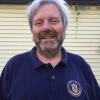WASHINGTON -- The Catholic Church has joined an interfaith effort to change U.S. immigration law. To prepare for that effort in the next Congress, it is also joining the Tour of the Faithful, an educational effort during September and October to convince people of faith to support changes in U.S. immigration policy.
"We're in a dark period," said Bishop John C. Wester of Salt Lake City, chairman of the U.S. bishops' Committee on Migration, during a Sept. 9 conference call to announce the 17-city Tour of the Faithful.
"Our current national immigration policy ... consists of work-site enforcement raids" that result in, among other things, "the dislocation of U.S. citizen children from their parents," he added.
"As a nation -- a nation of immigrants, I might add -- we cannot accept the labor of immigrants while undermining their basic human dignity," Bishop Wester said.
"At the same time, the issue of immigration reform is receiving little attention in the presidential race, and negative attention in the media," he added. Through the Tour of the Faithful, he said, "we hope to lift our voices to call attention to this important issue in the days and weeks ahead so that a new president and new Congress can address these issues early in 2009."
The tour was to start Sept. 10 with an interfaith prayer vigil on the lawn of the Ohio statehouse in Columbus.
One of the events, "Voting American Catholic 2008: Platform for the Global Common Good," will be held Sept. 27 in Omaha, Neb., as part of the Archdiocese of Omaha Social Ministry Commission's 10th annual Faithful Citizenship Conference at the St. Cecilia Institute in Omaha, a conference co-sponsor.
Former U.S. President Jimmy Carter is scheduled to speak at an Oct. 9 Christian immigration forum in Lexington, Ky. The tour takes in cities like Boston, Washington, Denver, Los Angeles and Phoenix -- as well as smaller venues such as Lutz, Fla.; Conway, Ark.; and Kalamazoo, Mich. -- before winding up in Chicago Oct. 19 with two U.S. representatives and two Illinois state representatives speaking at a candidate forum on immigration.
Immigration is "the quintessential elephant in the room," said the Rev. Samuel Rodriguez, an Assemblies of God minister who is president of the National Hispanic Christian Leadership Conference.
The issue, he added, "hides under the canopy of an old Clintonesque term, 'Don't ask, don't tell,'" Rev. Rodriguez added. Among the U.S. immigrant population, he said, "there is an incredible amount of angst, trepidation and fear."
Rev. Rodriguez also condemned work-site raids. He described the May raid at the world's largest kosher meat processing plant in Postville, Iowa, as a "debacle." He added, "This tragedy speaks to the need for immigration reform now."
The biblical injunction remains to "love the stranger as ourselves, love our neighbor as ourselves," said Rabbi David Saperstein, director of the Religious Action Center of Reform Judaism.
The concept of immigration "may be theoretical to many people," Rabbi Saperstein said, but not to Jews. "Jews are often forced to flee" from countries whose leaders have found them a threat, he noted.
Today's U.S. immigrants want to "come out of the shadows and regularize their immigrant status" but must endure "crushing waiting times" at the hands of the federal government, Rabbi Saperstein said.
The "second great commandment" of Jesus is to "love your neighbor," said the Rev. Jim Ryan, a Christian Church (Disciples of Christ) minister who is council executive of the Colorado Council of Churches. "It's not too much a stretch of theology to say that our love of God is reflected in how we love our neighbor," he added, recalling that Jesus told the parable of the good Samaritan when someone asked him, "Who is my neighbor?"
"If you have to ask who your neighbor is," Rev. Ryan said, "then your neighborhood is too small."



